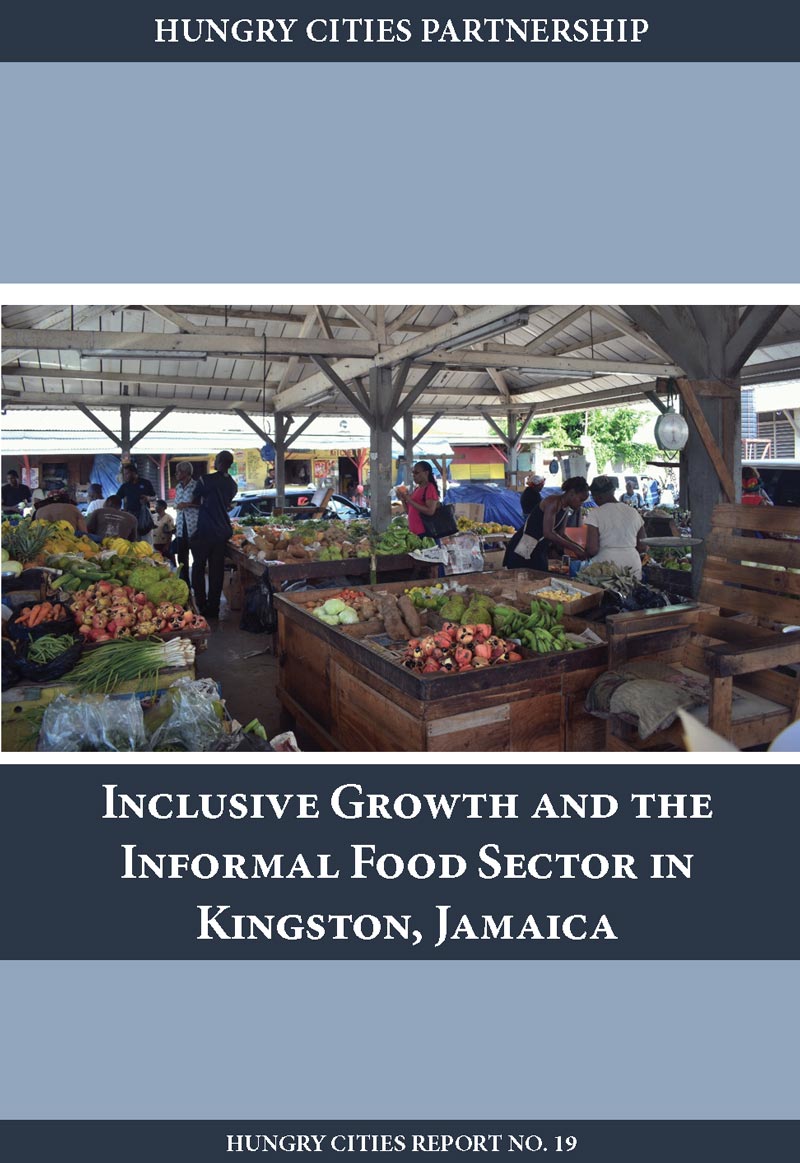The informal food sector is critical to the food security of poor urban households in most rapidly growing towns and cities in the Global South. In cities including Kingston, Jamaica, the informal food economy comprises a complex network of suppliers, transporters, hawkers, retailers, and street and market food vendors making food more accessible and affordable, especially in low-income areas. The survey results presented and discussed in this report indicate that the characteristics of small-scale food entrepreneurs in Kingston align closely with those of many other cities. The population of vendors is slightly dominated by women, is relatively poorly educated, and many have been operating businesses established within the past 10 years. Their occupational diversity is also relatively low and this may compound challenges associated with economic shocks and stressors. While informal vendors negotiate rough economic terrain, they demonstrate considerable resilience, expressed in the strategies used to navigate their challenges. To promote inclusive growth in Jamaica, a policy framework that prioritizes food security among the poor is essential. Given the opportunities that the informal food sector offers in raising incomes, alleviating poverty, addressing gender inequalities, and increasing the food-source options of the urban population, the sector is integral to achieving this objective.

